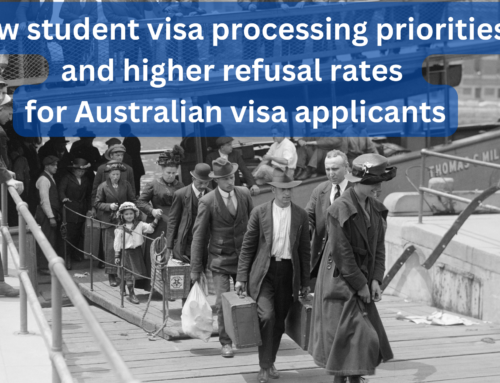The possible drop in the number of international students is a major concern with far-reaching effects due to the uncertainty surrounding the future intake of these students.
International students’ tuition fees are crucial to the financial stability of universities in nations such as the United States, Canada, Australia, and the United Kingdom. These students are a substantial part of the academic community, with their numbers reaching over a million in the USA alone. However, this reliance is fraught with risks due to unpredictable enrollment trends and changes in the sector. For example, recent policy changes in the UK, Australia, and Canada – ranging from visa regulations to restrictions on dependants for international students – have introduced uncertainties.
While both Canada and Australia have a long history of successfully recruiting international students, prospective students are understandably wary of the recent shifts in immigration policy and the availability of certain academic programs. Worldwide enrollment in American universities has fallen as a result of political unrest and campus safety concerns, threatening the country’s position as an educational leader.
In a recent 200-page interim report that was released on 26 October 2023 in Australia, the necessity of prioritizing integrity and quality in the tertiary sector was highlighted. However, international students in Australia are worried about possible restrictions and extra financial strains brought on by this report and suggested legislative changes. Social media comments reflect these concerns, with students voicing their frustrations over potential fee increases and perceived exploitation. They highlight the contradiction between inviting international students to fill skill gaps and then burdening them with additional costs.
Historical events like the Asian financial crisis in 1997, diplomatic tensions between Canada and Saudi Arabia in 2018, and attacks on Indian students in 2009 have previously caused significant fluctuations in international student numbers. Recent strained relations with China, although not yet severely impacting student numbers, add to the uncertainty.
The prospect of obtaining post-graduation work permits and eventual permanent residency is a major draw for students in Canada and Australia. However, only a small percentage of these students achieve permanent residency, often due to lack of necessary work experience and changes in policies affecting their pathway to permanent residency. Any changes in these policies could deter students from choosing these countries, redirecting them to other destinations like Europe.
This situation presents a substantial risk for post-secondary institutions, particularly private colleges and universities that lack alternative plans. These institutions are vulnerable to the whims of short-term political decisions that can have long-term effects. It’s essential for changes in immigration policies to be transparently communicated and discussed with all stakeholders to ensure a mutually beneficial outcome.





Leave A Comment